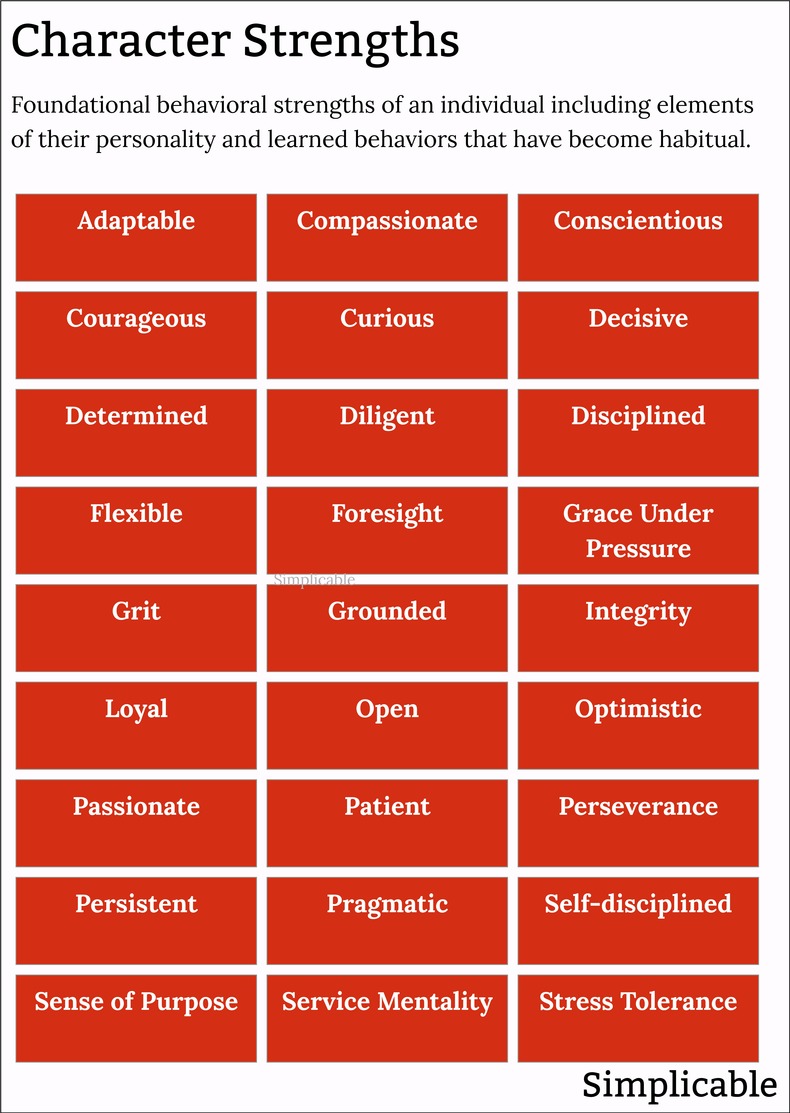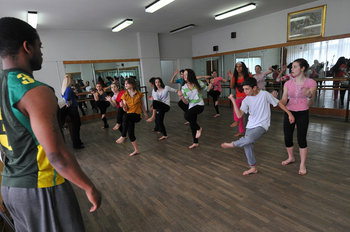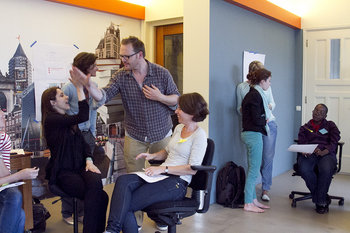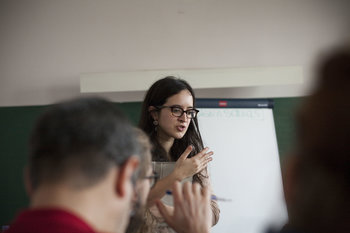
Agent of change | Analytical thinking |
Architectural design | Artistic talent |
Athletic talent | Attention to detail |
Big-picture thinking | Building trust |
Business acumen | Coding & computing |
Cognitive flexibility | Communicating |
Communication design | Competitive spirit |
Composition | Concentration |
Confidence | Conflict resolution |
Conscientiousness | Consensus building |
Counseling | Creative vision |
Critical thinking | Culinary sense |
Cultural capital - ability to influence within a particular culture | Cultural competence - ability to influence without shared culture |
Data science | Dealing with ambiguity |
Decision making | Decisiveness |
Design thinking | Determination |
Developing a positive group or team culture | Diligence |
Diplomacy | Emotionally grounded |
Engineering | Entrepreneurial spirit |
Fashion sense | Fast learner |
Financial analysis | Game theory |
Grace under pressure | Grit |
Hand-eye coordination | Humor |
Influencing beyond authority | Instructional design |
Introspection | Languages |
Leading missions and business functions | Leading teams |
Managing complexity | Managing stakeholders |
Mathematics | Memory and recall |
Mental agility | Mental endurance |
Mindfulness | Musical talent |
Navigating politics | Negotiation |
Non-verbal communication | Open-mindedness |
People management | Performing arts |
Personal presence | Personal resilience |
Perspective-taking | Persuasion |
Prioritization | Problem solving |
Professional mastery | Professionalism |
Public speaking | Rational thinking |
Reading and using emotion | Reading people and social situations |
Reflexes | Research & development |
Science | Self direction |
Self-discipline | Self-improvement |
Self-reflection | Sense of color |
Sense of product positioning & customer needs | Sense of style |
Sense of urgency | Service mentality |
Setting and managing expectations | Socializing |
Socially perceptive | Storytelling |
Strategic thinking | Stress tolerance |
Systems thinking | Tactfulness |
Teaching | User experience design |
Visual communication | Visual design |
Visual thinking | Willingness to learn |
Writing |
Business Talents
A business talent is a foundational strength, capacity or ability that is invaluable to professional pursuits and business outcomes.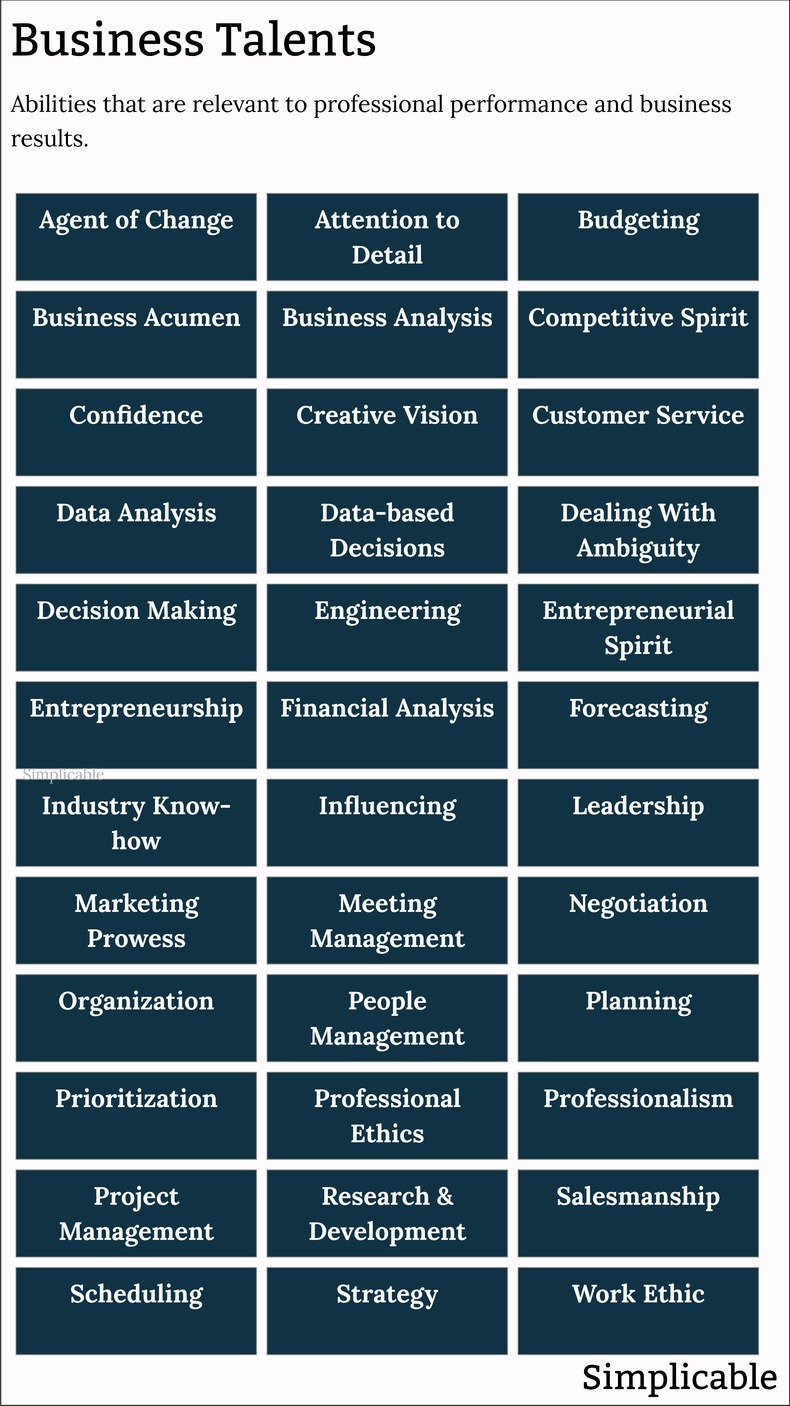
Creative Talent
The ability to see beyond what exists to invent new value that surprises. This is traditionally associated with a handful of domains such as art, design, music and performance art. However, creativity can benefit any profession or pursuit.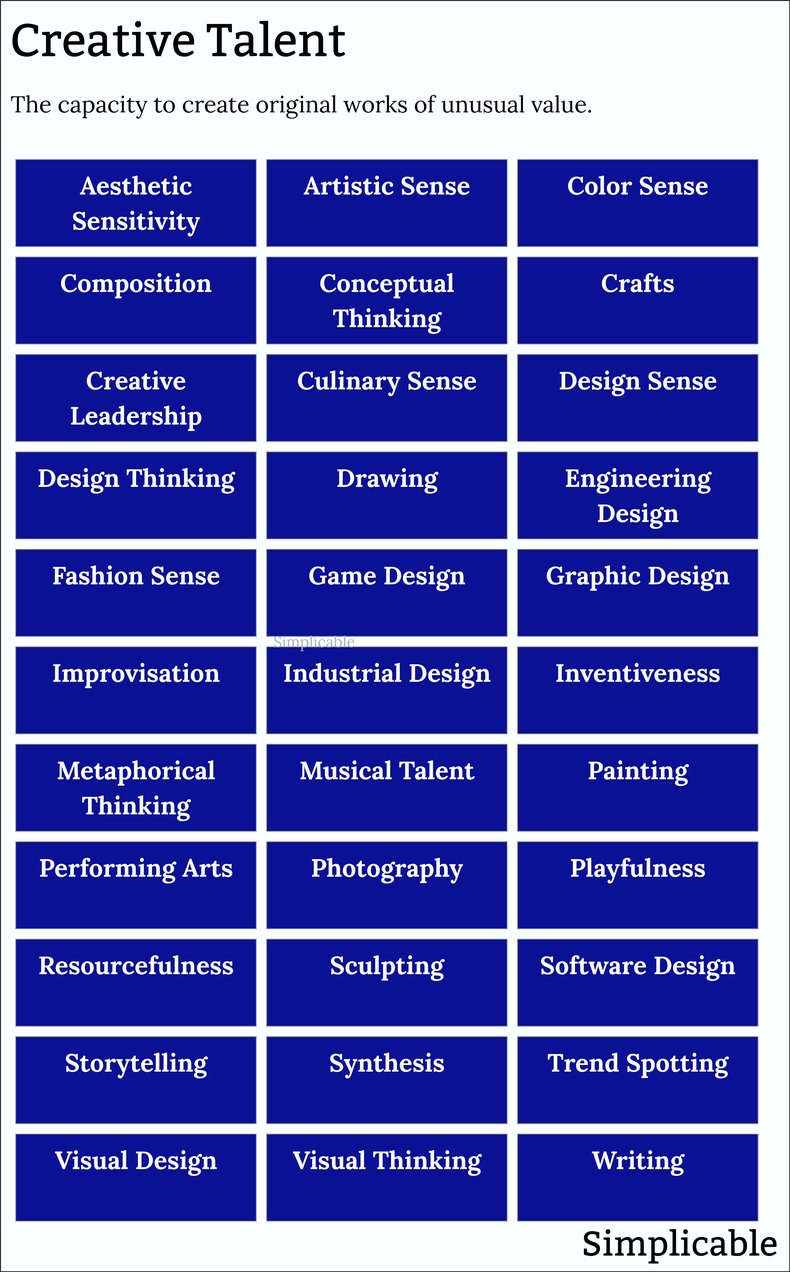
Media Talent
The diverse talent, abilities and personal characteristics that are beneficial to media production such as video games, films, music, podcasts, vlogs, design and traditional media.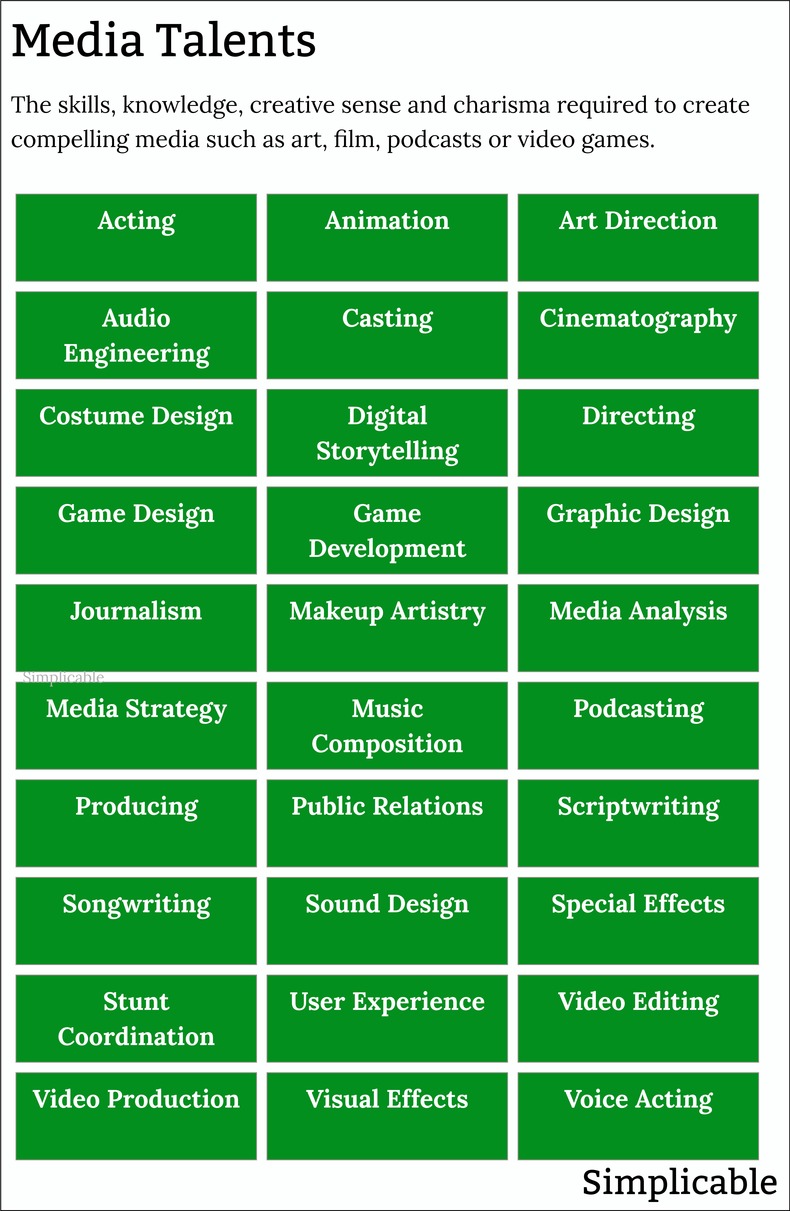
Communication Talents
Talents related to informing, influencing and persuading others.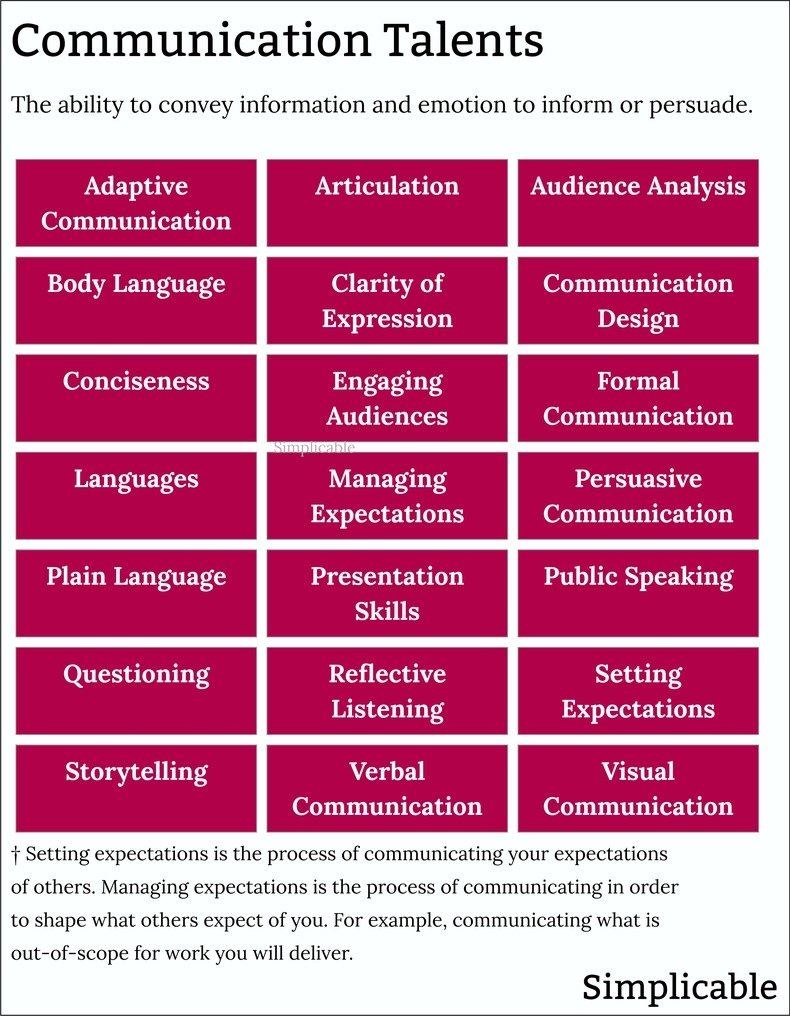
Interpersonal Talents
Social abilities that allow you to navigate social situations and build positive relationships with others.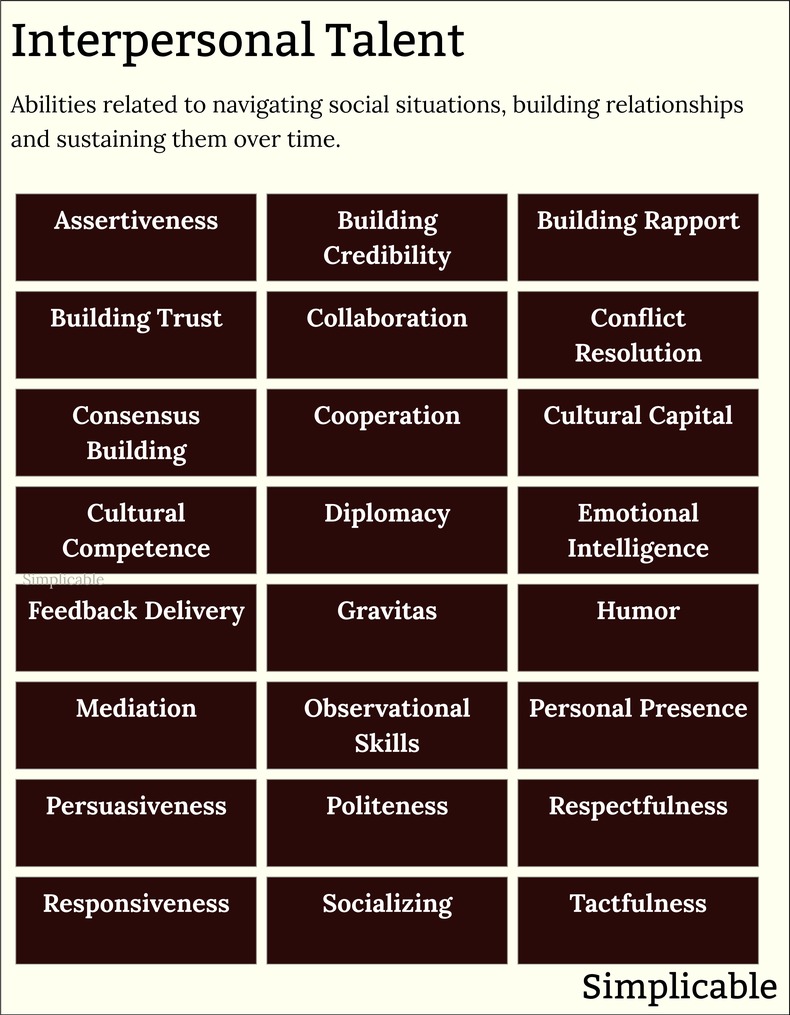
Thinking Talents
General cognitive capacities such as being a fast learner and the ability to think in different modes that are appropriate to each situation.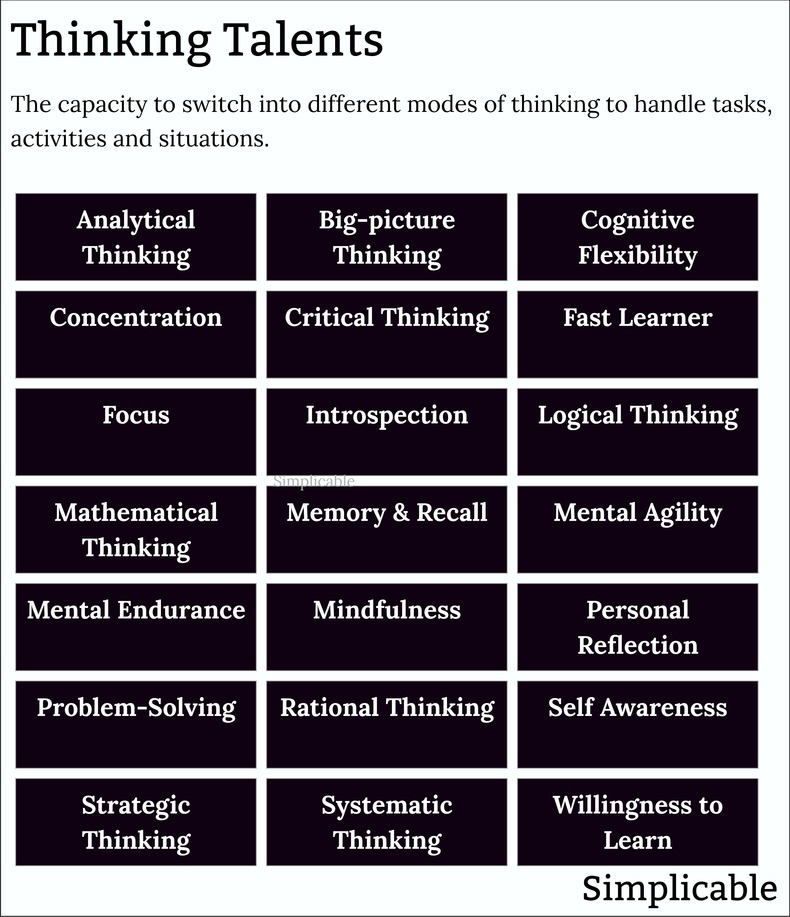
Character Strengths
Character strengths can be viewed as foundational talents. For example, if you are calm and brave, this can be viewed as a talent in a broad range of situations.